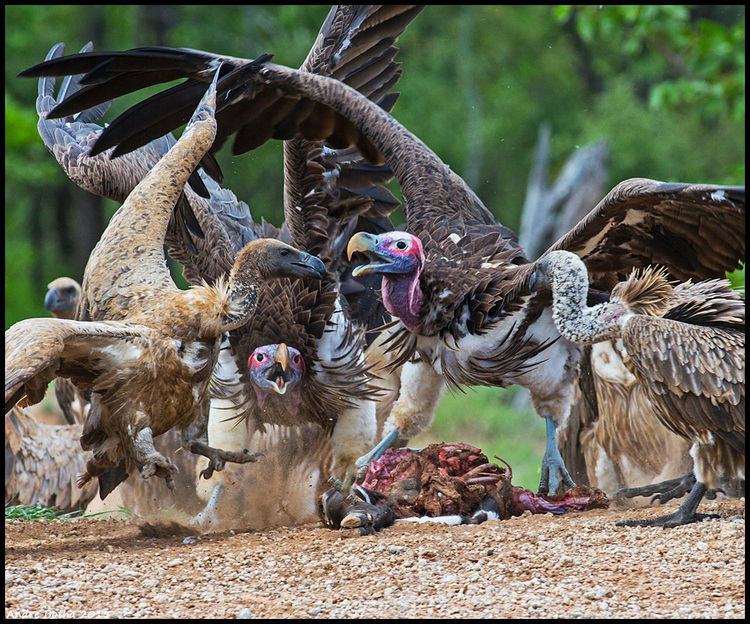
The Sunday Mail

Tendai Chara —
THE mushrooming of sports betting outlets has given rise to a demand for a concoction of vulture body parts used as luck charms, a factor which might result in the extinction of the carnivorous bird.
According to traditional healers, there has been a notable increase in the number of punters that are visiting them seeking juju to correctly predict sports results and win bets, among them the national lottery.
Juju made from vulture body parts is believed to be a source of clairvoyant powers, foresight and it is widely believed that it increases intelligence.
Those that use the juju are believed to acquire special powers that enable them to know what is going to happen before it happens. It is widely believed the juju makes it possible for people that use it to feel that something might go wrong before bad occurrences.
In Shona, this is called kufembera or kunyumwa. They are reportedly given forewarnings through messages from spirits in dreams and nightmares. Criminals and gamblers are some of the people that are said to be using the juju, driving the demand for vultures in the process.
Some of the myths surrounding vultures is the belief that its parts can enhance business opportunities and that school children who inhale a concoction made from the brains of a vulture excel in school.
By nature, vultures have acute vision and can easily find prey, traits that fuel the belief that they possess clairvoyant powers. Traditional healers say vulture brains are dried and rolled into a cigarette.
Experts say the use of vulture parts in traditional medicine is likely going to result in them becoming extinct in southern Africa within the next three decades.
A Harare-based traditional healer, Mbuya Simboti (real name Alice Masoko), said there has been a marked increase in the number of punters that are seeking traditional medicine that enables them to win bets.
“Over the years, there has been an increase in the number of people, mostly those that place bets, who are seeking juju for purposes of placing correct ones. That kind of juju is made from a concoction of vulture body parts. There is, therefore, a demand for vulture body parts,” Mbuya Simboti said.
According to the traditional healer, a vulture’s body parts, notably the heart, lungs and brain, are dried and mixed and can either be consumed or inhaled.
Betting has become a way of life for many Zimbabweans and bets are placed on football matches, horse races and other sporting disciplines.
Sekuru Chisanyu, a traditional healer and president of the Zimbabwe National Practitioner Association (ZINPA) said apart from the vulture, the traditional healing practice itself is threatened by extinction.
“It is all to do with managing the bio-diversity. We have medicinal plants that are facing extinction with some species having become extinct. Some plant species that were only found in wetlands are almost extinct because some wetlands have been destroyed,” said Sekuru Chisanyu.
Two years ago, Zimbabwe and the rest of the world woke up to the shocking news that an estimated 300 elephants had died of cyanide poisoning at the Hwange National Park. Also reported was the death of an estimated 200 vultures that had consumed the poisoned elephant carcasses.
Vultures, which are protected under the Parks and Wildlife Act, are some of the bird species that are seriously threatened by extinction. Hundreds, if not thousands of vultures can be killed in a single poisoning incident. Poisoning is the most lethal and widely used method of harvesting them.
Game experts argue that since vultures are late maturing birds that lay only two eggs every four years, the impact of cyanide poisoning can be catastrophic. Mr Lameck Adhaki, a game scout, professional hunter and tour guide said vultures are easy to trap.
“They sometimes feed themselves whilst they are inside the carcass. Poachers can simply corner them in the carcass and kill them. Another way of killing them is by poisoning the carcass,” he said.
According Mr Adhaki, there are six species of vultures found in Zimbabwe. Julia Pierini of Birdlife Zimbabwe, a bird sanctuary, is on record saying the country risks losing the bird species if poisoning in national parks is left unabated.
Environmental experts say vultures play an important role since they clean up the landscape by feeding on flesh that would have been left by animals.
The world over, vultures are threatened with extinction. Online sources say the birds population declined in West Africa on average by 95 percent in three decades alone. Seven of the eleven vulture species found in Africa are now listed as threatened.
The hooded vulture was listed among the endangered species in 2011. BirdLife International — the world’s biggest conservation partnership, recently announced that vultures have rapidly become one of the most threatened families of birds on the planet.
In South Africa, it was reported that there was great demand for vulture brains that was used for traditional medicine during the 2010 FIFA World Cup. Vultures’ brains and other body parts were openly sold on street markets and in shops.
The vultures had been poached from protected areas. The birds were killed using shotguns, poisons or traps. According to an online report, it is estimated that 1 250 vulture traders, hunters and traditional healers in eastern South Africa are involved in the vulture trade.
It is estimated that 160 vultures are sold per annum in eastern South Africa, with some 59,000 people having consumed the bird’s body parts.



